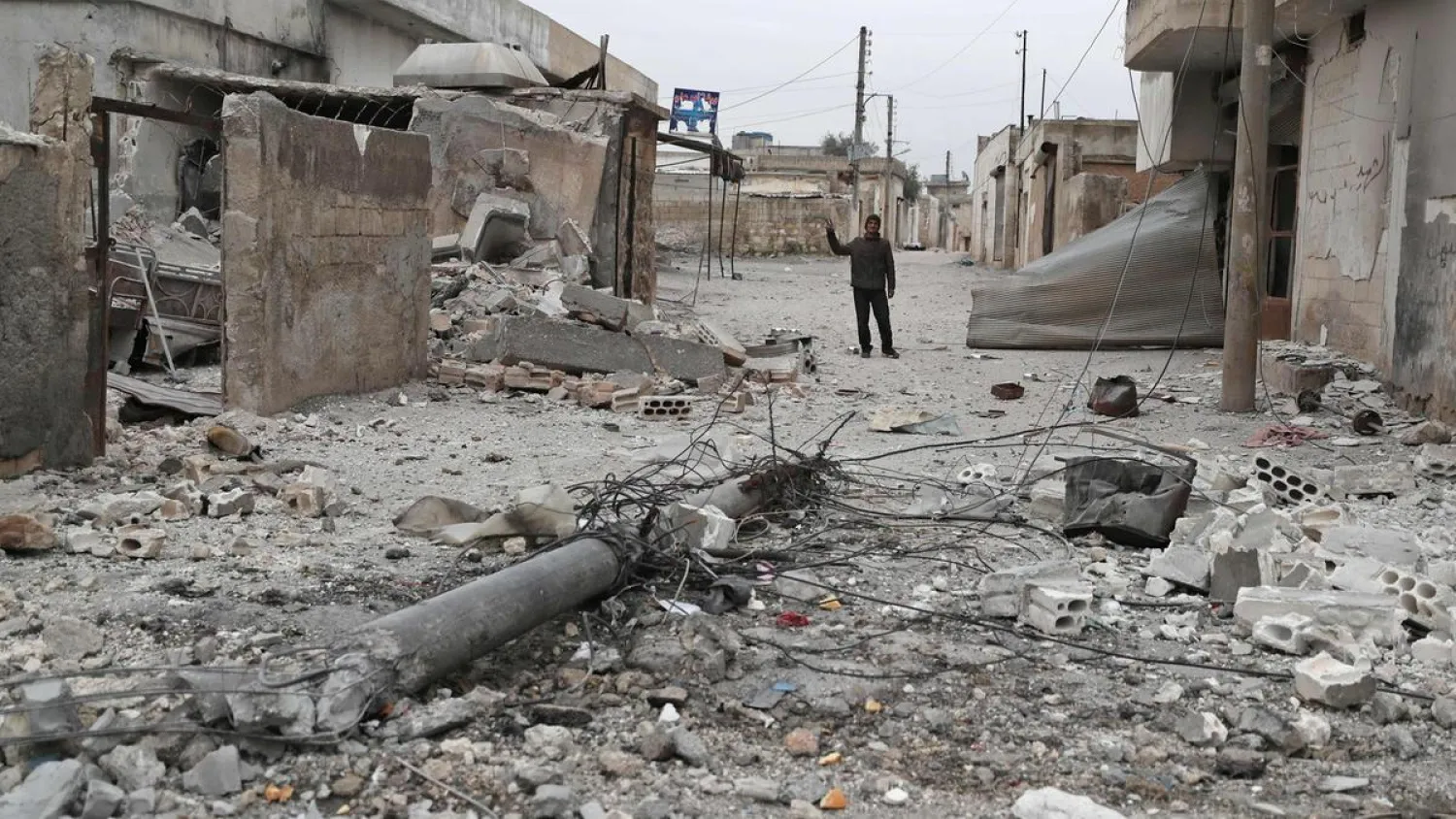A new American plan to isolate the Syrian regime is beginning to take shape. The plan includes a series of military, political, diplomatic, economic and legislative measures that will isolate Damascus “for years.”
Mid-June will be decisive in moving the plan forward as the Caesar Act will begin to be implemented. The act calls for imposing strict sanctions against any Syrian or non-Syrian side that helps in the country’s reconstruction.
A donors conference on Syria’s reconstruction will also be held in Brussels in June. Russia and the West are also headed on a collision course over the decision to extend humanitarian assistance across the Syrian borders. The UN Security Council had in January extended to June 10 authorization for the agency and its partners to deliver humanitarian aid across borders into Syria.
On the other front, Damascus, with Russian and Iranian support, has intensified its campaign to capture the strategic highways between Aleppo and Damascus and Aleppo and Latakia. Capturing the routes will revive Syria’s economy and ease the burden of sanctions and isolation.
The field campaign is accompanied by Russian diplomatic efforts to “normalize” relations between the regime and Europe and the “Arab family.” The upcoming Syrian parliamentary elections and the 2021 presidential elections will also play into these efforts.
The United States has sought to counter these moves by intensifying its contacts with influential European and Arab countries, taking into consideration the regime advances in the Idlib and Aleppo countrysides, the election of a new European Commission chief and Britain’s departure from the European Union.
In meetings with various European officials, the Americans have frequently stressed that Washington was not seeking a regime change in Syria, but a change in behavior. It means that Syria should not destabilize its neighbors and region, support terrorism or threaten Washington’s allies in the region. It must also abandon chemical weapons and ensure that they have been eradicated in line with the 2013 American-Russian agreement. The regime must also ensure the safe voluntary return of refugees to their homes and hold war criminals accountable.
The US is demanding the formation of a Syrian government that can meet the above demands, noting that the current one is incapable of doing so as demonstrated in its failure to respect UN Security Council resolutions 2118 and 2254.
The American disappointment is not limited to Damascus, but extends to Moscow because the American-Russian cooperation has failed to bear fruit in Syria. All it has achieved is avert a military clash between Washington and Moscow and turn a blind eye to Israeli strikes on Syria.
Given the above, escalation against Damascus appears like the natural trajectory. The US will forge ahead with economic, political, diplomatic and military pressure, starting with the implementation of the Caesar Act. European sanctions will also play a role. Europe recently imposed sanctions against ten people and entities affiliated with the regime.
With the Americans and Europeans seeing eye-to-eye, attention will be turned to the Brussels donor conference where conditions will be laid out before Damascus to facilitate a credible political process and provide the necessary conditions for the safe return of refugees in exchange for reconstruction.
Politically, Washington will preserve its relations with the Syrian opposition and contacts with refugees to unite ranks. It will also intensify contacts with the small group on Syria that support the opposition. It includes the US, Britain, France, Germany, Saudi Arabia, Jordan and Egypt.
Diplomatically, it will maintain its open contacts with Arab and European countries to avert political and diplomatic normalization of ties with the regime. It will support the Geneva political process to implement resolution 2254.
Militarily, Washington will continue to exert its pressure through its troops deployed east of the Euphrates River and continue to support the Syrian Democratic Forces and prevent regime forces from seizing territories from them. It will also exert efforts to prevent the regime from exploiting natural resources, such as oil and gas. The US will also maintain its al-Tanf military base and block supply routes between Tehran and Damascus.
It will also focus its attention on Turkey by providing it with intelligence and diplomatic support in areas it controls against regime and Russian forces in Idlib. Washington may seek to exploit the differences between Ankara and Moscow over Idlib in its favor. It will also continue to “bless” Israeli strikes against Damascus.
Should the US go ahead with its plan, the regime will be faced with years of isolation until desired change is achieved - unless Syria springs a surprise or the Russians and Americans reach an understanding.














